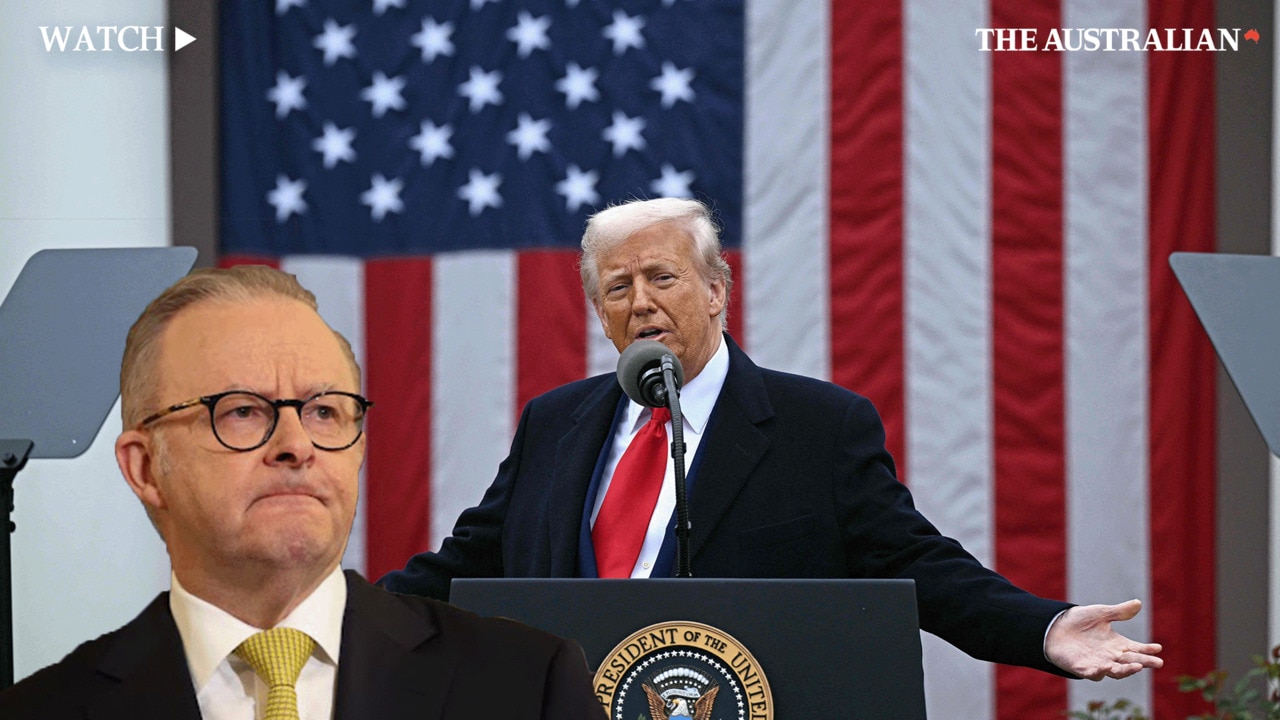US tariffs damaging but Americans will suffer: Aussie farmers
Donald Trump’s tariffs are damaging but Americans may hurt the most, say Australia’s farmers and meat producers, as they back the decision not to retaliate - or dumb down biosecurity.

Australian agricultural producers will boost efforts to diversify markets in the wake of Trump’s tariffs, which they say will have local impacts but also significantly hurt United States consumers.
The US is Australia’s second-largest market for agricultural goods, importing $6.8 billion of our beef, lamb, dairy, wine and other products each year.
Peak groups warned the 10 per cent tariff decision, which flouts a free-trade agreement between the two nations, would impact producers, but that these could be offset by growth in other markets.
They flagged major impacts in the US, including higher prices for burgers and less stable supply of red meat.

And they urged the next government to assist in further diversifying markets, seeking further details of the Prime Minister’s pledge of $50m to assist this.
With the US President singling out Australian beef, that industry also called for a concerted diplomatic push to avoid further fallout and reverse the decision.
There are concerns of a greater tariff or even ban being imposed on Australian beef exports to the US.
Prime Minister Anthony Albanese said later on Thursday that he had confirmed beef was - thus far - slugged only the general 10 per cent tariff.
The Red Meat Advisory Council said the US was Australia’s largest red meat export market in 2024.
“In addition to forming an industry taskforce to respond, we are also working very closely with the Australian government to restore free trade,” said council chair John McKillop.

The decision will impact the price competitiveness of Australian exports, notably beef burger mince, but Mr McKillop said US consumers would ultimately pay higher prices.
“Australian beef is in an estimated six billion hamburgers consumed each year in the US and this tariff will cost the US consumer an additional $US180m per year,” he said.
“Without Australian lean beef blended with local fatty trim, the US would need to use higher value cuts in their burgers and miss out on valuable export opportunities …”
Across all red meat exports to the US, the tariff would cost US consumers $AU600m, he said.
As well, it could impact reliability of supply, with Australian exports helping to fill the void when local US supply was short, such as due to drought.
“This is the case at the moment with their overall (US) herd at 70-year lows due to drought,” he said.
Despite the tariffs, the US would continue to be a “key market” for Australia, while there was scope to offset impacts by boosting exports elsewhere.
“Last year was a record year for Australian red meat exports … we operate in a strong global trading environment with high demand for our red meat from over 100 markets,” he said.
While the US was the largest export market, greater China took almost $4b in Australian red meat, Japan $2.6b and Korea $2.5b.
The Middle East and North Africa market was not far behind, taking $2b and offered particular opportunity for growth.
National Farmers Federation president David Jochinke said the US decision was a “step backwards for our nations and for the global economy”.

Mr Jochinke said he spoke to Mr Albanese early on Thursday, opposing retaliatory tariffs while backing a “firm stance” in defence of Australia’s biosecurity system, blamed by the US for restricting its imports.
“While this decision creates unnecessary uncertainty, we remain confident in the strength of Australian agriculture,” Mr Jochinke said. “Our products are sought after worldwide for their quality, sustainability, and reliability.”
Meat & Livestock Australia challenged Donald Trump’s assertion that Australia had “bans” on US beef imports to Australia.
“There is currently no ban on US beef exports to Australia,” said MLA managing director Michael Crowley. “The US has also asked for access to Australia for beef from cattle raised in Mexico or Canada and processed and exported from the US. This revised request is undergoing the normal Australian science-based assessment.”
Mr Albanese said there had also been concerns around Mad Cow Disease and US beef.







To join the conversation, please log in. Don't have an account? Register
Join the conversation, you are commenting as Logout